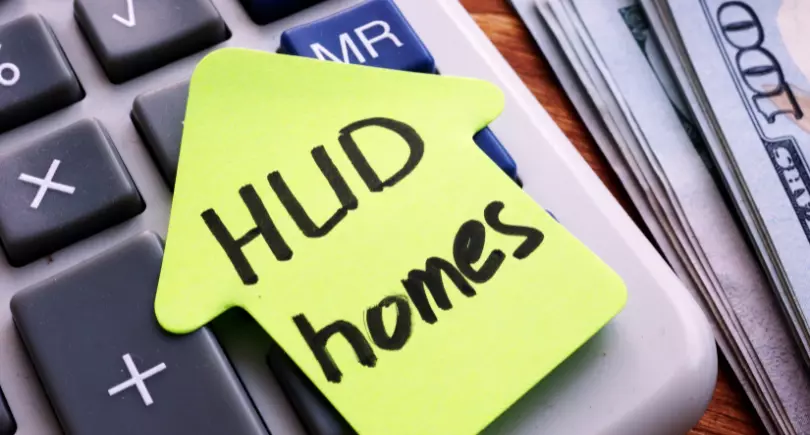Understanding HUD Homes: A Guide to Affordable Homeownership Opportunities

What Is a HUD Home?
A HUD home is a residential property that has been acquired by the U.S. Department of Housing and Urban Development (HUD) after the original owner defaulted on a Federal Housing Administration (FHA)-insured mortgage. When a borrower with an FHA loan is unable to meet their payment obligations and the home goes into foreclosure, HUD takes ownership of the property. These homes are then offered for sale to the public through a specific process designed to promote affordable homeownership and help HUD recover the loss from the foreclosure claim [1] .
Key Features and Benefits of HUD Homes
HUD homes are often sold below market value, making them an attractive option for individuals and families seeking affordable housing. Some key benefits include:
- Affordability: Prices are typically set to encourage quick sales, potentially offering below-market opportunities.
- Prepaid closing costs: In some cases, HUD may offer incentives such as paying a portion of closing costs for eligible buyers.
- First-time buyer preference: During the initial listing period, HUD gives priority to buyers who intend to occupy the home as their primary residence, rather than investors. This can benefit first-time and lower-income home buyers [1] .
- Broad eligibility: Anyone who can secure financing or pay cash can purchase a HUD home, provided they meet basic requirements.
It is important to note that availability is limited, and HUD homes are sold “as-is,” which means buyers are responsible for any repairs or improvements needed [1] .
Eligibility and Who Can Buy a HUD Home
Anyone can purchase a HUD home if they can arrange financing or pay cash. However, during the initial sales period, HUD prioritizes owner-occupants-buyers who intend to live in the property-over investors. This means that if you’re planning to make the home your primary residence, you’ll have an early opportunity to buy before investors are allowed to bid [1] .
In addition, HUD encourages homeownership for low-income families, first-time buyers, and certain groups such as teachers and law enforcement officers through specific incentive programs. You do not need to be a first-time homebuyer, but you must be able to qualify for a mortgage or have sufficient funds for a cash purchase. Those who purchase with the intent to occupy the home are generally viewed more favorably than those looking to invest or rent the property out [1] .
How to Find and Purchase a HUD Home
Unlike traditional homes, HUD homes are not typically listed on local Multiple Listing Services (MLS). To find available properties, you should:

Source: choicehomewarranty.com
- Visit the HUD Home Store: The official source for HUD-owned properties is the HUD Home Store. You can search for available homes by state, city, or ZIP code. The site allows you to filter by property type and location. Search for “HUD Home Store” or go directly to hudhomestore.gov to browse current listings [1] .
- Work with a HUD-approved real estate broker: To submit a bid on a HUD home, you must work with an agent who is registered with HUD. These professionals can guide you through the process and help you navigate paperwork and bidding requirements.
- Financing: Buyers can use cash or secure a mortgage, including FHA loans, to purchase a HUD home. Your broker can assist you in finding lenders familiar with HUD transactions.
- Submit a Bid: Bids are submitted electronically through the HUD Home Store by your HUD-registered agent. During the initial 30-day period, only owner-occupants can bid. Afterward, unsold properties are available to all buyers, including investors.
It’s essential to conduct a thorough inspection, as HUD homes are sold “as-is” and repairs are the buyer’s responsibility. Some buyers may qualify for special programs that provide repair financing or closing cost assistance-ask your broker about such options.
Step-by-Step Guide to Buying a HUD Home
The process to buy a HUD home involves several specific steps:
- Determine your budget and get pre-approved for a mortgage. This will help you understand what you can afford and make your offer more attractive to HUD.
- Search for available homes on the HUD Home Store. Use the filters to find properties in your desired location.
- Find a HUD-approved real estate agent. Only these agents can submit bids on your behalf. Ask for credentials and experience with HUD transactions.
- Tour the home and conduct an inspection. Although HUD does not make repairs, you are encouraged to have a professional inspection to assess the property’s condition.
- Submit your bid. Your agent will submit your offer through the HUD Home Store system. If your offer is accepted, you will be notified and given a set time to complete the transaction.
- Secure financing and close the deal. Work with your lender and agent to finalize the mortgage and complete all documentation. You may be eligible for some closing cost assistance or repair loans-ask your agent about these opportunities.
Throughout the process, communication with your agent and lender is key. They will help ensure all paperwork is correct and deadlines are met.
Potential Challenges and Considerations
While HUD homes offer unique advantages, there are important considerations to keep in mind:
- Limited availability: The number of HUD homes for sale at any time can be limited, especially in certain regions. Not every area will have properties listed.
- As-is condition: HUD homes are sold in their present state. Buyers are responsible for all repairs and maintenance needed, which can sometimes be substantial. It is critical to budget for potential repairs and conduct a thorough inspection before committing to a purchase [1] .
- Bidding process: Because homes are sold via bids, there is competition. Submitting a strong, competitive offer with pre-approval can help your chances.
- Time constraints: Buyers typically have a limited window to close on the property. Delays in financing or paperwork can jeopardize the deal.
To overcome these challenges, work closely with experienced professionals and prepare thoroughly before entering the bidding process. Consider alternative affordable housing options as a backup in case your bid is not accepted.
Alternative Paths to Affordable Housing
If you find that HUD homes in your area are unavailable or not a good fit, there are other programs and opportunities you might consider:
- Public housing: Managed by local housing authorities, public housing provides affordable rental options for low-income families, seniors, and people with disabilities. Eligibility is based on income, family status, and citizenship/immigration status. To apply, contact your local public housing agency. For more information, visit the Department of Housing and Urban Development’s official website and search for “Public Housing Program” [2] .
- Section 8 Housing Choice Vouchers: These vouchers assist low-income families in finding affordable rentals in the private market. You can apply through your local public housing authority.
- Other government-supported housing initiatives: There are a range of federal, state, and local programs that support affordable housing. For detailed information, search for “HUD affordable housing programs” on the official HUD website or contact your state housing finance agency.
By exploring multiple avenues, you can increase your chances of finding a suitable and affordable housing solution.
Key Takeaways and Next Steps
HUD homes present an opportunity for affordable homeownership, especially for those willing to navigate the unique aspects of the process. To begin your search, visit the official HUD Home Store website or contact a HUD-approved real estate agent in your area. Remember to get pre-approved for a mortgage, carefully inspect any property before purchase, and prepare for potential repairs. If you do not find a suitable HUD home, explore other affordable housing programs through your local public housing agency or the Department of Housing and Urban Development.
For further assistance, search for the “U.S. Department of Housing and Urban Development” online or contact your local housing authority for up-to-date information on available programs and application procedures.

Source: fluentslang.com






